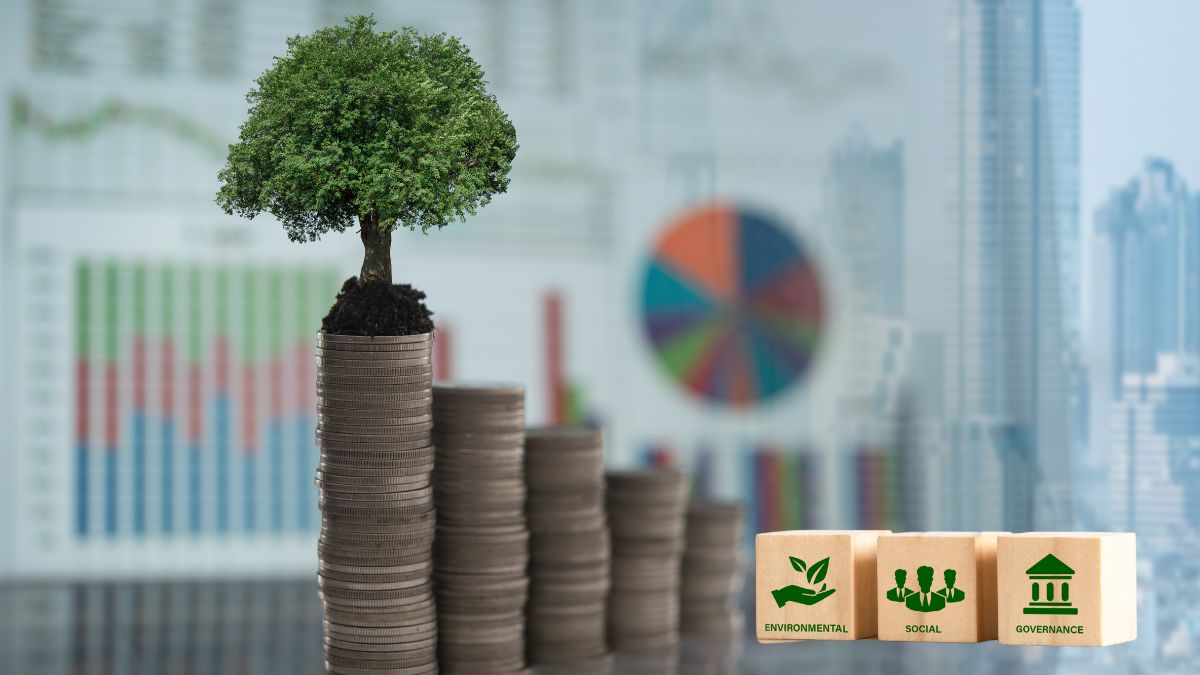Sustainable finance is at the heart of the global transition toward a greener, more responsible economy. As stakeholders—from investors to governments—demand more accountability and transparency in financial decisions, regulations such as the Sustainable Finance Disclosure Regulation (SFDR) are setting the benchmark for responsible investment. But why is sustainable finance so important?
In this article, we explore 10 compelling reasons why sustainable finance, driven by effective disclosure frameworks, is reshaping the financial world.
1. Promotes Environmental, Social, and Governance (ESG) Transparency
The sustainable finance disclosure regulation is a game-changer for ESG reporting. By requiring financial market participants to disclose how sustainability risks are integrated into their decision-making, it brings transparency and accountability to the forefront. This empowers investors to make informed choices aligned with their values.
Keyword variations used: ESG transparency, sustainability risks, SFDR reporting
2. Mitigates Long-Term Financial Risks
Sustainable finance helps identify and manage climate-related and social risks that could affect long-term financial performance. Regulations like the SFDR enforce due diligence by requiring institutions to assess how their products could be impacted by environmental or societal changes.
Keyword variations used: climate risk, financial stability, SFDR compliance
3. Aligns Investments With Global Climate Goals
Sustainable finance supports the objectives of the Paris Agreement by encouraging investments in low-carbon and climate-resilient assets. The SFDR plays a critical role here, as it classifies financial products based on their sustainability characteristics—encouraging investors to redirect capital towards climate-friendly solutions.
Keyword variations used: low-carbon economy, green finance, Paris-aligned investing
4. Supports Regulatory Compliance Across the EU
The Sustainable Finance Disclosure Regulation is a central component of the EU’s Green Deal and Sustainable Finance Action Plan. Compliance with the SFDR ensures that asset managers, insurance firms, and other financial actors meet legal expectations regarding sustainability disclosures.
Keyword variations used: SFDR framework, EU regulations, sustainable finance action plan
5. Boosts Investor Confidence and Market Credibility
By mandating consistent and comparable ESG disclosures, the SFDR reduces greenwashing—a key concern in today’s investment landscape. This boosts investor confidence, helping markets operate more efficiently and sustainably.
Keyword variations used: investor trust, ESG data transparency, anti-greenwashing regulation
6. Enhances Corporate Accountability and Governance
Sustainable finance doesn’t just affect financial institutions; it impacts corporate behavior as well. As financial entities demand better ESG data from companies, businesses are encouraged to improve governance structures, reduce carbon emissions, and uphold ethical practices.
Keyword variations used: corporate sustainability, ESG accountability, governance reporting
7. Drives Innovation in Sustainable Financial Products
The growing importance of sustainable finance, guided by SFDR classifications (Articles 6, 8, and 9), is accelerating innovation in green bonds, ESG-linked loans, and thematic funds. This supports a thriving sustainable finance ecosystem that prioritizes long-term impact over short-term gain.
Keyword variations used: ESG investment products, Article 8 funds, green bonds innovation
8. Encourages Institutional Responsibility and Stewardship
SFDR mandates that financial institutions disclose their Principal Adverse Impacts (PAIs), compelling them to take responsibility for the broader effects of their investment choices. This promotes a culture of sustainability and stewardship across the financial value chain.
Keyword variations used: PAI disclosures, sustainable stewardship, institutional ESG responsibility
9. Responds to Stakeholder and Societal Demands
Sustainable finance is becoming a non-negotiable due to rising stakeholder activism. Millennials and Gen Z investors, employees, and consumers increasingly demand that financial actors commit to sustainability. The SFDR empowers stakeholders to evaluate ESG commitments based on transparent data.
Keyword variations used: stakeholder ESG expectations, socially responsible investing, ESG-conscious consumers
10. Contributes to Sustainable Economic Growth
Ultimately, sustainable finance fuels inclusive and sustainable economic development. By integrating ESG principles into mainstream financial strategies, and with the SFDR ensuring accountability, economies can grow while respecting planetary boundaries and social equity.
Keyword variations used: sustainable development, green economy, ESG-driven growth
Conclusion: The Strategic Role of Sustainable Finance Disclosure Regulation
The Sustainable Finance Disclosure Regulation is not merely a compliance tool—it’s a catalyst for global financial transformation. It ensures that sustainability becomes embedded in financial systems, aligning capital with long-term economic, environmental, and social goals. Whether you are an asset manager, policymaker, or retail investor, understanding and implementing sustainable finance practices today is an investment in a better future.
Key Takeaways
- The SFDR improves transparency in ESG reporting, fighting greenwashing.
- Sustainable finance aligns with global climate goals and Paris Agreement objectives.
- Regulatory compliance through SFDR strengthens investor trust and corporate governance.
- It fosters innovation and accountability in financial markets.
- Sustainable finance is central to creating long-term, inclusive economic growth.
FAQs: Sustainable Finance Disclosure Regulation (SFDR)
Q1: What is the main goal of the SFDR?
A: To improve transparency around sustainability risks and impacts in financial products and services across the EU.
Q2: Who must comply with SFDR?
A: All EU financial market participants including asset managers, pension funds, insurance companies, and investment advisors.
Q3: How does SFDR help prevent greenwashing?
A: By requiring clear, standardized disclosures on sustainability claims and ESG strategies, the SFDR holds firms accountable.
Q4: What are Article 6, 8, and 9 funds under SFDR?
A: These articles classify financial products by their level of ESG integration—from minimal consideration (Article 6) to fully sustainable objectives (Article 9).
Final Thoughts
As global markets move toward a net-zero and socially equitable future, sustainable finance will only grow in importance. The sustainable finance disclosure regulation ensures that the transition is built on a foundation of truth, transparency, and trust.
The financial industry’s commitment to sustainability is no longer a trend—it’s a regulatory, economic, and ethical imperative.


